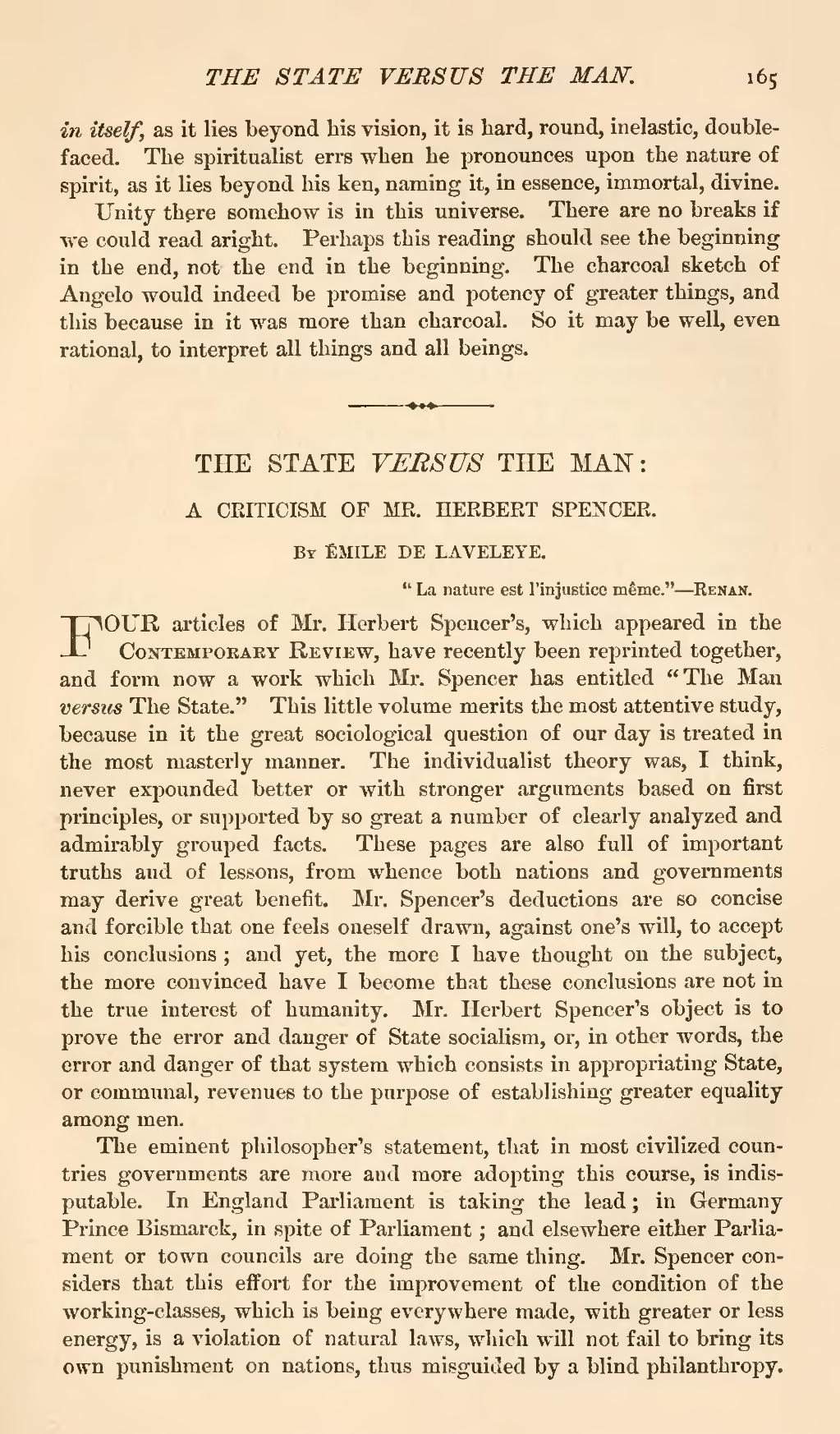in itself, as it lies beyond his vision, it is hard, round, inelastic, double-faced. The spiritualist errs when he pronounces upon the nature of spirit, as it lies beyond his ken, naming it, in essence, immortal, divine. Unity there somehow is in this universe. There are no breaks if we could read aright. Perhaps this reading should see the beginning in the end, not the end in the beginning. The charcoal sketch of Angelo would indeed be promise and potency of greater things, and this because in it was more than charcoal. So it may be well, even rational, to interpret all things and all beings.
| THE STATE VERSUS THE MAN: |
A CRITICISM OF MR. HERBERT SPENCER.
By ÉMILE DE LAVELEYE.
FOUR articles of Mr. Herbert Spencer's, which appeared in the Contemporary Review, have recently been reprinted together, and form now a work which Mr. Spencer has entitled "The Man versus The State." This little volume merits the most attentive study, because in it the great sociological question of our day is treated in the most masterly manner. The individualist theory was, I think, never expounded better or with stronger arguments based on first principles, or supported by so great a number of clearly analyzed and admirably grouped facts. These pages are also full of important truths and of lessons, from whence both nations and governments may derive great benefit. Mr. Spencer's deductions are so concise and forcible that one feels oneself drawn, against one's will, to accept his conclusions; and yet, the more I have thought on the subject, the more convinced have I become that these conclusions are not in the true interest of humanity. Mr. Herbert Spencer's object is to prove the error and danger of State socialism, or, in other words, the error and danger of that system which consists in appropriating State, or communal, revenues to the purpose of establishing greater equality among men.
The eminent philosopher's statement, that in most civilized countries governments are more and more adopting this course, is indisputable. In England Parliament is taking the lead; in Germany Prince Bismarck, in spite of Parliament; and elsewhere either Parliament or town councils are doing the same thing. Mr. Spencer considers that this effort for the improvement of the condition of the working-classes, which is being everywhere made, with greater or less energy, is a violation of natural laws, which will not fail to bring its own punishment on nations, thus misguided by a blind philanthropy.
